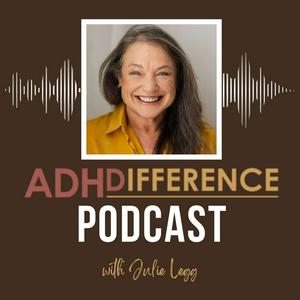Julie Legg sits down with clinical psychologist Dr. Matt Campbell, co-creator of the Our Primal Five framework, to explore why self-care feels so hard especially for ADHDers and why the basics matter more than we realise.
Rather than promoting productivity hacks or aesthetic routines, Matt brings the conversation back to foundational human needs: sleep, sunlight, movement, social connection, and mindful consumption. He explains how modern life constantly pulls us away from these essentials, and why structure, not motivation, is the real key to sustainable change.
This episode is a great reminder that self-care isn’t indulgence. It’s replenishment. And for ADHD brains in particular, small, structured, repeatable shifts can be far more transformative than grand, short-lived resolutions.
Key Points from the Episode:
Why “knowing” what to do doesn’t automatically lead to “doing” it
The difference between motivation and structure, and why structure wins
Why ADHDers struggle with the basics like sleep, hygiene, and routine
How perfectionism and all-or-nothing thinking sabotage change
Why guilt and self-criticism actually block behaviour change
The concept of Our Primal Five: sleep, sunlight, movement, social connection, and consumption
How stacking habits makes change sustainable
Why exercise can rival antidepressants for mood regulation
The hidden cost of digital “junk” consumption — social media, news, and overstimulation
The power of understanding ADHD to dismantle narratives of laziness or failure
Sustainable self-care as structure, not indulgence
Links:
WEBSITE: https://www.ourprimal5.com/
INSTAGRAM: https://www.instagram.com/ourprimal5
LINKEDIN: https://www.linkedin.com/in/matt-campbell-a5b22910/
WORKBOOK: https://www.amazon.com/dp/B0FQWSX73R?tag=ourprimal5-20
NEWSLETTER: https://our-primal-5.kit.com/9b41ee5325
Send a text
Thanks for listening.
📌 Don’t forget to subscribe for more tools for beautifully different brains.
🌐 WEBSITE: ADHDifference.nz
📷 INSTAGRAM: ADHDifference_podcast
📖 BOOK: The Missing Piece: A Woman's Guide to Understanding, Diagnosing and Living with ADHD
ℹ️ DISCLAIMER: This podcast is for informational purposes only. The views expressed are those of the guests and do not necessarily reflect those of the host or ADHDifference. Read More


